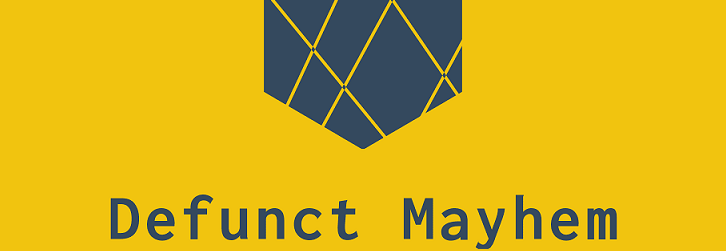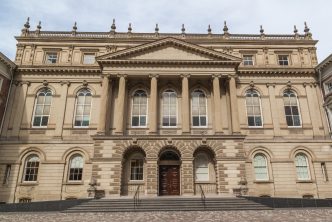The University of Guelph’s Central Student Association has launched a campaign with the International Student Organization to reverse the student tuition increases for foreign learners approved in April.
The tuition increase at the U of G comes at a bad time for international students across Canada. COVID-19 restrictions have reduced the number of jobs available to international students, and they are not eligible for the Canadian Student Emergency Benefit being provided by the Federal government.
On April 22, the U of G Board of Governors unanimously approved a significant increase in international student tuition fees.
“We’re demanding the university reverse the decision immediately, freeze tuition fees, and provide more financial support,” said CSA VP External, Horeen Hassan. “A lot of these students are thinking of dropping out.”

An international student from the University of Guelph who wished to remain unnamed said that international students feel as if they’re being treated like bags of money for the institution.
“While waiting for some good news during this crisis, it was shocking and discouraging to see this news,” the student said. “Now I am seriously thinking of dropping out and going back to my country to finish my studies.”
At the BoG meeting, incoming interim-President, and current Provost Dr. Charlotte Yates claimed that – compared to other universities – the University of Guelph had relatively low international fees that could be perceived by international students as meaning that the U of G’s programs were not the same quality as other institutions.
In her brief statement Yates acknowledged that this increase in tuition would help balance the budget for programming, and that the jump was partly tied to the fact that the provincial government has frozen domestic tuition until 2021.
“Many international students are heartbroken that an institution they love so much is putting such a financial burden on them,” said Hassan.
Yates also said that the increasing fee would be used primarily to fund additional supports for international students, and that some fees – masters of science and engineering – had costs that were currently insufficient to fund the programming.
In contrast, the CSA and ISO say that this dramatic increase is detrimental to the international student experience.
As a co-sponsor of the campaign, the co-presidents of the ISO have spoken out about the impact an increasing tuition has for students in Canada studying from out-of-country.
“The decision is often between supporting basic needs or paying tuition. We are often stressed, worried about our families, and wonder if we will even be able to enroll in the following semester,” said added Lisa Kazuhara, Co-President of the ISO. “All of which makes international students often rely on resources such as the Food Bank to support our basic needs.”
“There is a false perception that all international students are wealthy, as a matter of fact the majority of them rely on more than one part-time job to support themselves financially” said Anna Canella, the other Co-President of the ISO. “We are all experiencing the impact of COVID-19. The reality is that without a prospective job for the summer, [and] the global economy compromised, us students and our families are struggling to finance our education.”
“An increase in tuition makes international students face the hard decision to potentially not return in the Fall,” Canella said.
For a number of years, tuition in Ontario was increased at a predetermined percentage for the domestic population. This meant that tuition for domestic students could never exceed an increase of 3%. Across various programs, the average rate of increase was held at 3% from 2016 until 2019 when the Ford government put a freeze on domestic tuition increases.
International tuition was not regulated the same way and has unspokenly been used to prop up the increasing costs of education as the cost of running a post-secondary institution increased. In January 2019, the Ford government also mandated a 10% reduction in all tuition fees.
“The common theory is that universities use international student fees to make up what they lose from not being able to charge Canadian students such prices (because it would be [an] insane [cost]),” said U of G Biomedical Sciences graduate, Husam Himmat.
In the spring of 2017, the Board of Governors voted to change the way international student tuition was structured. Before 2017, international students were locked in at the price they applied to school at, and their tuition could be increased by up to 3%. Even with an inflated fee, this meant that international students could budget for the next year.
This change allowed the U of G BoG finance committee to approve larger changes to international student tuition that would increase for all cohorts from the fall of 2017 onwards.
“I was the last class unfortunately of students to have the benefit of the Cohort to ensure our fees were not able to increase yearly as high as it has been for the other students,” said Canella. “I literally just found a few weeks ago about this when reading the BOG agenda from April 2020 that the University had revoked this policy in 2017, making it so that no matter to which rate you agreed on upon admission, it could change at any time with no heads up.”
“Even though I experienced at most a 3% increase on my fees yearly throughout my undergrad I […] constantly call my mom, super stressed, anxious about being deported,” she added. “For this reason, I can completely understand the claim that many students would not be able to come back in the Fall. I would have had to abandon the school I fell in love with, without a reimbursement of the money spent and no degree.”
Norman Osman, a U of G student from Mauritius, said that the fact Canadian tuition is lower than the U.S. was an important factor when he was choosing where to go to school.
“Tuition did play a role in my decision making process, but I wouldn’t say that it was my top criteria,” Osman said. “I thought that the previous tuition price was in line with what I was paying. The small increments in the years […] followed the inflation that happens to most things, but such a drastic jump was very surprising.”
“The States is twice what I would have paid here, so in that way tuition price helped narrow down my choice,” he said.
Ultimately, it seems that the tuition increase comes down to a question about whether or not students apply to schools because of the competitive costs or the program quality. At the BoG meeting on April 22, Yates intimated that it was standard practice to raise costs by a significant amount to stay competitive.
The CSA and ISO have brought the conversation to the table, but the international experience is not limited to the University of Guelph. We asked international students why they applied to their programs in both the Canadian college and university systems and how the costs affected their ongoing decision to pursue an education in Canada.
Here are just a few of their stories:
Snehal Kataruka is a Sheridan journalism student from India. She recently completed her certificate in Journalism – New Media. When asked about whether our not price had an impact in her decision to apply to Sheridan , she said “definitely.”

“The tuition cost had a major impact because it’s not easy and it’s definitely not fair to pay three times the amount as Canadian students,” Kataruka said. “With no guaranteed internship opportunities – let alone job interviews – I know a lot of students who would love to study in school here, but then again, the tuition costs are just skyrocketing.”
Kataruka says that post-secondary advertising internationally is akin to reverse psychology.
“I think programs that are costly, obviously pay more for marketing outside of Canada, the schools that are highly marketed are also costly, it’s a vicious cycle,” said Kataruka to GuelphWire.
However, her choice of school was not based on what school had the most expensive price tag.
“When I did my research, I based it solely on the courses and facilities included,” said Kataruka. “If I didn’t do my research, I would simply think an expensive school is better because that gets marketed more than an average tuition cost school.”
Kataruka is now worried about her future. She says she was hoping to find a placement or job out of the course at Sheridan, and says that was included in the price of tuition. Now that COVID-19 has shut everything down, placements and internships have largely been put on hold or cancelled altogether.
“I mean I don’t think I have the kind of money to afford another course. I most definitely don’t want to ask my parents,” Kataruka told GuelphWire.
Anna Canella, a Brazilian neuroscience student at the University of Guelph and the co-president of the International Student Organization, has a compelling story.

From the get-go, she contests the idea that a competitive tuition price has anything to do with her decision to apply to the University of Guelph.
“It’s easy to say that students are not looking for the recognition in the cost of tuition. I came because I did my research and found out what opportunities there were for me,” Canella said to GuelphWire.
Canella is an international student from Brazil. Even though her family had encountered financial hardship, Canella says that the post-secondary landscape in Brazil is unfair and highly limiting.
In Brazil, students must take an aptitude test to get into post-secondary education. This test determines what field they will study in.
“You go through a very hard and lengthy standardized exam, and once you enroll there is no flexibility on your program to even choose the courses that interests you,” Canella said. “Most of the universities force students to follow a standard list of courses to take, and if, down the road, you learn that the program is not for you, the student needs to take the standardized test all over again.”
Canella decided to apply to school in Canada.
“I took a leap of faith and jumped on a plane to figure it all out. My mom was always the biggest advocate that things would work out, and they did,” Canella said. “My uncle lived in Milton, where I lived for my first two years, he supported my costs of living, and helped me by lending some money. I have commuted and worked part-time since my first year.”
Canella says it has not been an easy trip and money has always been a concern, especially for her family back in Brazil, but she acknowledges that she has been lucky.
“My parents still can barely send me any money. I usually have to save money in the summer, cut down costs to the bare minimum, carry maxed out credit cards, and make financial arrangements to pay tuition in installments,” she said. “Over time, I was able to afford my living costs in Guelph, rent and all. I was able to cover more than half on my undergrad tuition costs through my work.”
Canella indicates the idea of a competitive cost-per-program is nonsensical and says that the quality of the program is the part most international students look to when they’re making decisions about where to go to school.
“In my honest opinion if one was to base the quality of education on its costs, many colleges would be ranked the best ones” she said.
“If an institution places its value based on its monetary cost, all that they are attracting are individuals that do not care about learning or to contribute to the academic community,” she says in response to Yates’ comments.
“They are attracting students that simply want an easy way to immigrate and are willing to pay high prices for that. Or these would be students that are just paying a very high price for a 4-year retreat abroad and an expensive piece of paper without the grades to give it any value,” Canella speculated in a message to GuelphWire.
In discussion about the U of G, Canella says the school should fall back on its reputation for recruitment and not jack up the costs for competitive purposes.
“The reason Guelph gets hundreds of very competitive applications from international students is because of the recognition and great opportunities it has to offer,” she said. “An academic institution is made from its students’ intellectual ability and academic dedication, contributing daily to research and innovation, not how much they charge in tuition.”
Malavika Anupraj is a journalism media student from Dubai. Before coming to Canada, Anupraj, who also goes by the artist name Ambotti, was starting to get involved in graphic design and music in Kochi, India.

Seeking new skills and more education, Anupraj chose Sheridan College as her next challenge.
“I applied for two courses at Sheridan last year – Advanced Television and Film as my first priority and New Media Journalism as my second,” she said. “I even confirmed my seat for the ATVF program but in that time an alumni got back to me and told me how their experience was.”
“He warned me saying that the course was definitely expensive; $30,000,” she said.
“He also mentioned how I should note that all the costs related to making our student films (which there would be multiple I guess) would be on us as well. All that would come up to an enormous amount when adding transportation, rent, cost of living and everything else,” Anupraj told GuelphWire.
“I decided to change my decision and accept New Media Journalism,” she said.
In addition to a different set of skills, the journalism course was significantly cheaper than the ATVF program.
“Our course was around $24,000 for me. So it made sense financially for my reasons to pursue a course of this kind,” Anupraj said. “The tuition definitely had a lot of impact on my decision.”
Anupraj was looking for more than just an expensive course that might lead to a job. She was looking at the quality of the education and the various perks that came with the education.
“My priority was how expensive the course was, how great the co-op would be, the support offered for placements, the experience of it all, the area it was in,” she said.
Right now, she has applied to a co-op placement, a hard thing to find in the COVID-19 era for many students.
Shivyoshita Sood, a journalism student from India, was looking for a quality education, and opportunity.

“For me the main factor in my decision was applying to a good school if I was going to move to a different country,” said Sood. “Tuition fees definitely played a big role.”
Sood says she was not in search of a level of prestige based on cost, but for the chance to expand her horizons.
“When I first started researching, I was shocked to see that international students pay almost triple the fees domestic students pay,” Sood told GuelphWire. “I went back and forth on whether I should choose a better program which is more expensive, or if I should go for a school that’s going to cost me less.”
In the end, and in consultation with her parents, Sood chose the better program, despite the cost.
“It wasn’t an easy decision and has been very stressful,” she said.
After finishing the year-long journalism – new media certificate, Sood is looking at continuing her education in Canada.
“Even before all this craziness [COVID-19] my plan was to go back to school for another year to get the 3 year work permit,” she said. “I applied to cheaper schools this time because I can’t take another loan and I don’t want to ask my parents for money.”
Now, Sood is hoping to get into a program at Fanshawe. If she gets in this would allow for a more comprehensive work opportunity in Canada.
For her, it was never about the cost of the program, or about the school’s supports it was about the opportunity. The higher cost of a more comprehensive program was undoubtedly a detriment to the Canadian educational experience.
Ritika Dubey, holds journalism certificates from the University of London, Adelphi University in New York, and Sheridan College, and has a Bachelors from Indira Gandhi University says paying for school abroad is not as easy as most schools make it sound.

The cost of tuition caused hesitation for Ritika when she was deciding to apply for a program in Canada.
“I had to think, ‘okay, am I getting what I wanted out of this program’,” she said.
Ritika says the high cost of international fees feels like a tactic to keep domestic tuition low and still cover costs.
She says the advertising Canadian schools puts out is like “a beautiful picture.”
The messaging, she says, is “like, you should definitely come here, this is the best opportunity for you, this is how you’ll find work.”
“But when you actually come here is feels like ‘what was I even thinking? Why did I rope myself into this, because this isn’t exactly what I was trying to get out of it,” she said.
She says that COVID-19 has made the experience a lot tougher. Many students in the college system who take a one year course are required to find work quickly after finishing the program if they want to stay in the country.
“There are some people in our class who are taking another program so they can stay in the country, but for me that’s too expensive, I can’t afford it,” she said.
“I love to be a student, I wish I could keep reading and learning for the rest of my life,” she said. “tuition fees for international students are awfully high. I can’t imagine paying that all by myself.”
She says she thought about applying to another program to work towards getting a job in her field.
“I cannot pay another $26,000 for a one year program,” she said with a sigh. “Even if I could spend that much, I just don’t see the ROI, the return on investment, that I’m putting into my education.”
“Constantly raising tuition fees completely changes the purposes of being a student,” she said.
Ritika says if it’s all about the money and the cost, students lose sight of the whole idea of an education.
“It’s not about the quality of the education,” she says.
“The more tuition costs go up, the more it’s about who can pay up.”
This article was originally published on GuelphWire.
(Reporting by Jack Fisher; Editing by David Fisher; Margie Grier; Eli Ridder)






